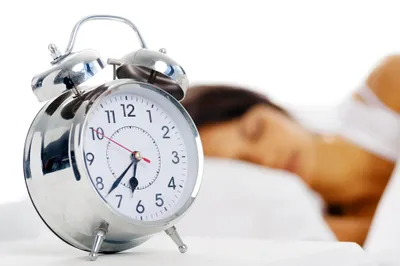Did you know that most humans spend approximately one-third of their time sleeping?
I know, with so much to do it hardly seems productive to devote that many hours to slumber. However, before you think you’re wasting your time, there’s a lot being accomplished health-wise inside the body as it snoozes—from the minute you drift off to dreamland to the moment you rise and shine.
Here are 9 health benefits that I bet you didn’t know happen as you sleep…
1. You’re feeling very, very sleepy…
I know your brain is hardly a hypnotist. However, the brain can make you fall asleep just as affectively by releasing a natural hormone called Melatonin—minus the magic wand and sparkly top hat of course! The release of melatonin occurs right before you drift off to dreamland. However this natural hormone does far more than simply whisk you away to la-la land with a flush of feel good emotions. Melatonin also has a proven number of health benefits, including providing a powerful flush of antioxidants to the immune system to help fight free radical damage, cancer, inflammation, and brain decline.
2. You workout while you sleep
Another reason to get a full 8 hours of sleep each night is that you shed weight while you sleep. You don’t actually work out, but your body does shed a considerable amount of water weight via sweating, breathing, and firing the metabolism (which continues to work at rest). So if you want to log adequate time in the dreamland gym; be sure to get a full 8 hours of rest each night.
3. The spine elongates and realigns
Some doctors will tell you that you actually grow while you slumber, but really it’s your spine that lengthens. You see, as you sleep the discs in your spine elongate or decompress due to lack of gravity and pressure that occurs as you stand during the day and walk around. That’s why sleeping in a position that doesn’t compress the spine (like on your side in the fetal position) is the best for your back health.
4. Heart rate decreases
It’s no surprise that the rest you get during sleep is good for you body—particularly your heart. During sleep the heart beat and heart rate both slow, giving the heart a much earned rest. This means you’re your blood pressure is lower as your heart muscles and circulatory system reboot and repair for the day ahead.
5. You fart…a lot
It turns out sleep is better than beans for your heart—the more you snooze, the more you fart! This is due relaxation of the anal sphincter muscles, which lets you eliminate pent up gas from the digestive system. But don’t worry, if you’re partner is sleeping they won’t catch you in the act.
6. Collagen increases to repair damaged skin
See, your mother was right, you do need your beauty rest and mom is referring to the excess collagen proteins released during sleep that help repair and strengthens damaged skin cells and also fighting those dreaded fine lines and wrinkles. So regardless of the price you pay for moisturizer and botox, neither have anything on a good night’s sleep!
7. Muscle and tissue repair
You walk to work, spend the day on your feet or hunched over a desk, and maybe go to the gym or join your buddies for a game of basketball after work. All of that muscle energy burned during your day is replenished during sleep. During rest hormones—like adrenaline and cortisol (your fight or flight response) decreases, giving way to a flush of human growth hormone (HGH) needed for muscle repair, growth and maintenance.
8. Your immune system gets a boost
If you’re sick the best thing you can do for your body is to sleep it off—literally. This is due to the fact that the immune system works overtime as we sleep, excreting certain proteins, white blood cells, and more to help fight off germs, infections, and disease. That is why, you’re most prone to an infection or flu is you’re sleep deprived.
9. The digestive system gets a rest
Your body is like a furnace, and that furnace is fueled by your digestive system, which supplies adequate energy by breaking down food into energy. However, during sleep, the digestive system slows in order for optimal effectiveness during waking hours. This is why it’s a bad idea to eat before bed—that food will sit, undigested all night like a lump in your tummy and rob you of precious sleep.












